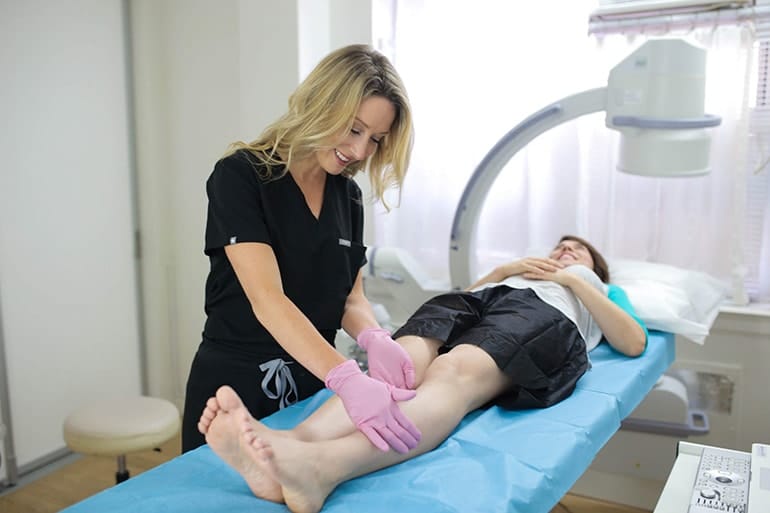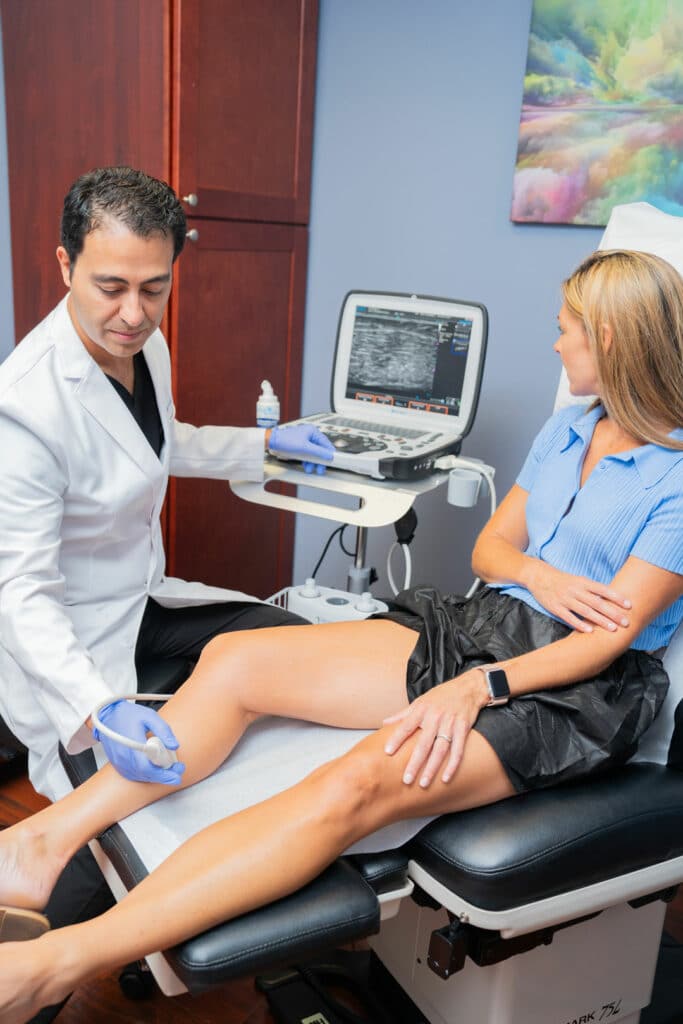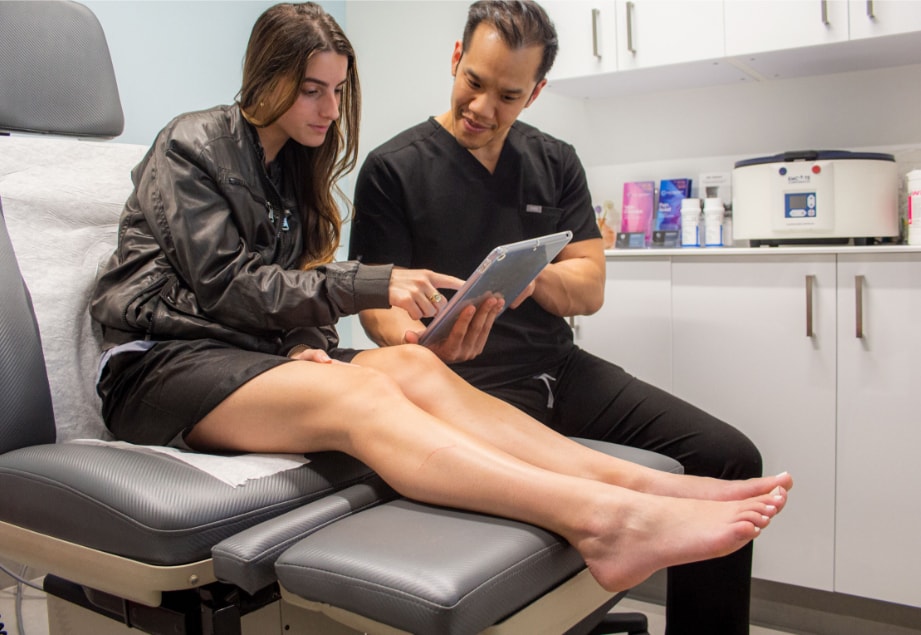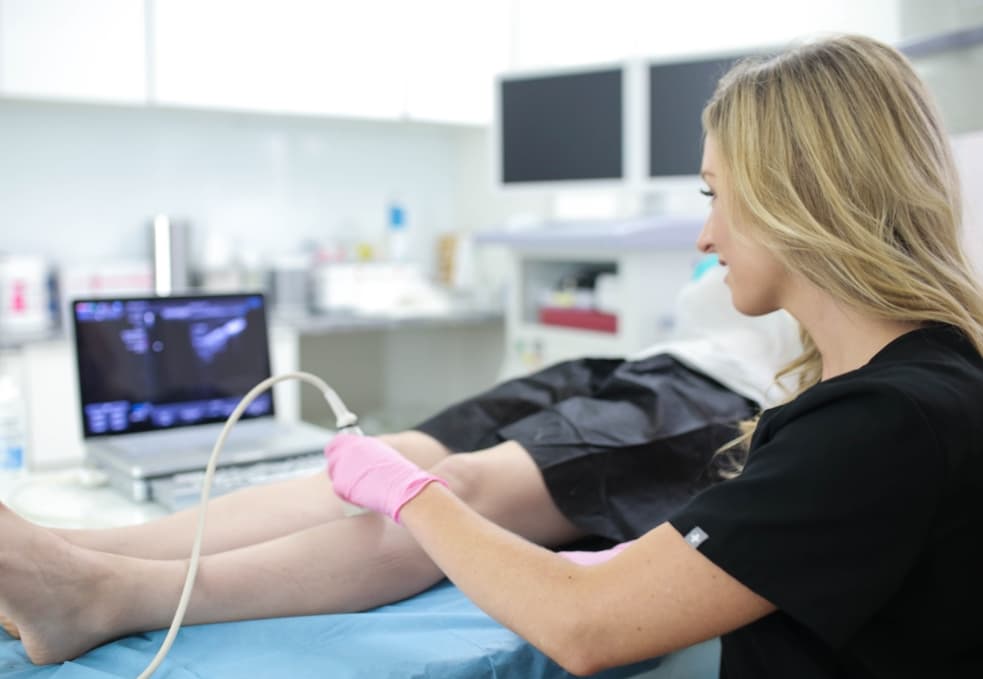What are the most common vein problems?
The human body is an amazing thing. It is made up of many different systems that all work together to keep us alive and healthy. The circulatory system is one of these systems and it is responsible for transporting blood around the body. The veins are a part of the circulatory system and they play an important role in keeping our blood flowing.
However, veins can sometimes become damaged or experience problems. These problems can range from mild to severe and can have a big impact on our quality of life. In this article, we will explore the most common vein problems, the signs and symptoms of vein damage, and when you should contact a board-certified vein doctor in Maryland for treatment.

1. Spider Veins
Spider veins are small, thin veins that often appear on the surface of the skin. They are usually red, blue, or purple in color and can be found on the legs, face, and chest. Spider veins are usually harmless and do not cause any pain or discomfort, but they can be indicative of underlying vein disease. Furthermore, they’re unsightly and can be a source of embarrassment.
2. Varicose Veins
Varicose veins are larger, thicker veins that can also be found on the legs, face, and chest. They are usually blue or purple in color and often look like they are twisted or bulging. Varicose veins can be painful and can cause a range of symptoms, such as heaviness in the legs, swelling, and cramping.
3. Leg Heaviness
Leg heaviness is a common symptom of vein problems. It can be caused by spider veins, varicose veins, or other underlying conditions. Leg heaviness can make it difficult to stand for long periods of time or to walk long distances.
4. Restless Leg Syndrome
Restless leg syndrome is a condition that causes an irresistible urge to move the legs. This urge is often accompanied by a tingling or crawling sensation. Restless leg syndrome can make it difficult to sleep and can cause fatigue.
5. Frequent Leg Cramps
Leg cramps are common, especially in people who have vein problems. They can be caused by spider veins, varicose veins, or other underlying conditions. Leg cramps can be painful and can make it difficult to walk or stand.
6. Throbbing Leg Veins
Throbbing leg veins are a common symptom of vein problems, possibly caused by spider veins, varicose veins, or other underlying conditions. The accumulation of blood in leg veins can lead to throbbing sensations that cause discomfort.
7. Leg Ulceration
Leg ulcers are open wounds that can occur on the legs. They are often caused by underlying vein problems, such as chronic venous insufficiency. Without proper blood circulation in your legs, your wounds can’t heal properly, leading to non-healing sores known as ulcers.
8. Deep Vein Thrombosis
Deep vein thrombosis is a condition that occurs when a blood clot forms in a deep vein. It is often associated with long periods of immobility, such as sitting on a long flight or car journey. Deep vein thrombosis can be dangerous and can lead to serious health complications, such as a pulmonary embolism.
9. Chronic Venous Insufficiency
Chronic venous insufficiency is a condition that occurs when the veins are unable to effectively pump blood back to the heart. This can lead to a build-up of blood in the legs and can cause a range of symptoms, including leg heaviness, swelling, cramping, and varicose veins. In fact, chronic venous insufficiency is the root cause of most vein problems.
Chronic venous insufficiency: the root cause of most vein problems, including varicose veins
When your veins have to work harder than usual to pump blood back to your heart, it may cause your veins to become enlarged, twisted, and discomforting. This is called chronic venous insufficiency (CVI), and it’s the root cause of most vein problems. The valves in your veins keep blood flowing in the right direction—toward your heart. But when they don’t work properly, blood can flow backward and pool in your veins. This causes the veins to become larger and more dilated, leading to spider veins and varicose veins.
What are the earliest signs and symptoms of vein disease?
There are a few early signs and symptoms of chronic venous insufficiency (CVI). They are: heaviness and fatigue in the legs, aching, cramping, and itching. These symptoms are usually worse at the end of the day or after standing for long periods of time. As CVI progresses, the skin around the ankles and on the legs can become thin and discolored. There may also be open sores, called ulcers, on the legs.
What are the potential long-term complications of untreated chronic venous insufficiency?
There are a number of potential long-term complications associated with untreated chronic venous insufficiency. This condition can lead to the development of varicose veins, which are twisted, enlarged veins that are visible under the skin. If left untreated, chronic venous insufficiency can also lead to more serious complications such as ulcers, blood clots, and deep vein thrombosis. This is why it’s important to seek treatment for chronic venous insufficiency as soon as possible.
When should I contact a vein doctor in Maryland?
There are many reasons why people contact a vein doctor. Some people are concerned about the cosmetic appearance of spider veins, while others have more serious vein problems, such as varicose veins. In general, you should contact a board-certified vein doctor in Maryland when you notice any of the signs or symptoms of chronic venous insufficiency, such as spider veins, varicose veins, leg pain, leg swelling, leg heaviness, leg cramps, restless leg syndrome, or skin changes in the legs.
Maryland Vein Center is led by some of the country’s finest board-certified vein doctors specializing in minimally invasive spider vein and varicose vein treatments. You can find our vein doctors at 10215 Fernwood Rd, Suite 301, Bethesda, a short drive from Washington, D.C., in Silver Spring. Please schedule an appointment at our vein center in Maryland.





